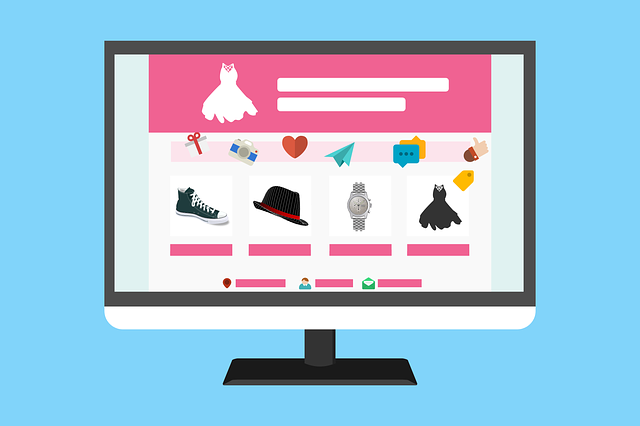Introduction
Are you considering building a marketplace website? Whether you're an entrepreneur looking to launch your own online marketplace or an established business wanting to expand your reach, building a successful marketplace website requires careful planning and consideration of various factors. One of the most important factors is cost � how much will it really take to build and maintain a thriving and profitable marketplace platform? In this blog post, we dive into the nitty-gritty details of the cost of building a marketplace website so that you can make informed decisions about your project. So strap in and get ready for some serious insights! We already wrote an e-commerce guide for beginners where we discuss different models which exist out there Our company has been doing custom development and building online marketplaces for years and we have a wealth of experience and expertise when it comes to creating and running successful marketplaces. If you're interested in learning more about our company or our services, please don't hesitate to contact us.�Whether it is custom marketplace development or customizing an existing online marketplace website, we can do it. Marketplace website development done rightWhat is the difference between an e commerce business and a web marketplace?
An ecommerce business and a web marketplace are both online platforms for buying and selling goods or services, but they differ in several ways.- Ownership of Inventory: In an ecommerce business, the business owns and sells its own inventory, while in a web marketplace, multiple sellers offer their products or services on the same platform.
- Business Model: In an ecommerce business, the business generates revenue by selling its own products or services directly to customers, while in a web marketplace, the platform generates revenue by charging a commission or fee on each transaction made by the sellers on the platform.
Types of marketplace websites
There are four main types of marketplace websites: business-to-consumer or business to customer (B2C), business-to-business (B2B), consumer-to-consumer (C2C), and consumer-to-business (C2B). 1. Business-to-consumer (B2C): A B2C marketplace is one where businesses sell products or services to consumers. This is the most common type of marketplace, and examples include Amazon, eBay, and Etsy. 2. Business-to-business (B2B): A B2B marketplace is one where businesses sell products or services to other businesses. These types of marketplaces are often used by businesses that have specific needs that can be met by other businesses, and they can be found in a variety of industries. Some examples of B2B marketplaces include Alibaba, Fiverr, and Upwork. 3. Consumer-to-consumer (C2C): A C2C marketplace is one where consumers sell products or services to other consumers. These types of marketplaces are often used by people who want to sell items they no longer need or who want to make some extra money. Some examples of C2C marketplaces include Craigslist, eBay, and Airbnb. 4. Consumer-to-business (C2B): A C2B marketplace is one where consumers sell products or services to businesses. These types of marketplaces are less common than others, but there's less competition in them as well.
The cost of building a marketplace website
So how much does it cost to build an online marketplace? There are many factors to consider when determining the cost of building a marketplace website. The most important factor is the size and scope of the marketplace. A small, niche marketplace will have different costs than a large, general marketplace. Other important factors include the features and functionality of the website, the number of users, and the amount of traffic the website receives. Building a marketplace website can be expensive, but there are ways to keep costs down. One way is to use open-source software or platforms that have no upfront costs. Another way is to use a managed service or platform that includes hosting, support, and other services for a monthly fee. Finally, consider using a pay-as-you-go model for pricing rather than an upfront cost. This can help reduce the risk if you're not sure how successful your marketplace will be. The cost of a marketplace website will vary depending on the size and scope of the project, the essential features and functionality of the website, the number of users, and the amount of traffic the website receives. However, the average cost of a marketplace Marketplace websites are becoming increasingly popular, as they offer a convenient and efficient way for businesses to reach a larger audience of potential customers. However, building a marketplace website can be a costly undertaking, as it requires significant investment in terms of time, money, and resources. If you're considering building a marketplace website, it's important to be aware of the potential costs involved. In this article, we'll take a look at the key elements that will impact the cost of your project. 1. Website Design and Development: The cost of designing and developing your marketplace website will depend on the size and complexity of your site. If you're looking to build a simple site with basic features, you can expect to pay around $10,000-$20,000 for development costs. However, if you're planning to build a more complex site with advanced features such as social networking integration or multi-vendor support, you could be looking at development cost in the range of $50,000-$100,000+. Marketplace website development cost will greatly depend on the number of core features you will want to build, your business model, which software development company you will choose, the process of your online sales and business goals. Marketplace apps development will be a separate task that you will have to handle separately. 2. Hosting and Maintenance: Once your marketplace website is up and running, you'll need to factor in the costs of hosting and maintaining your site. Depending on the size and traffic volume of your site, you can expect to pay anywhere from $30-$100 per month for hosting and maintenance. 3. Marketing and Promotion: You'll also need to factor in the costs of marketing and promoting your marketplace website to ensure it reaches the right people. Depending on your budget, you may choose to invest in paid advertising or use more cost-effective methods such as social media marketing or content marketing. In conclusion, the cost of building a marketplace website will vary depending on many factors such as size, features, traffic volume, and marketing budget. However, by taking the time to understand these costs upfront, you can ensure that your project is successful without overspending.
Features of an Online marketplace?
What features are required for an online marketplace? An online marketplace is a website where users can purchase and sell products or services. There are a number of features that are typically required for an online marketplace, including the following: 1. A user registration process: A successful online marketplace requires a user registration process that allows users to sign up and join the marketplace. This process should be easy to use and require minimal input from the user. 2. A product catalog: A successful online marketplace requires a product catalog that lists all of the products and services that are available for sale. The product catalog should be well organized and easy to search, and it should include information about the product.
1. A user registration process: A successful online marketplace requires a user registration process that allows users to sign up and join the marketplace. This process should be easy to use and require minimal input from the user. 2. A product catalog: A successful online marketplace requires a product catalog that lists all of the products and services that are available for sale. The product catalog should be well organized and easy to search, and it should include information about the product.  3. A payment system: A successful online marketplace requires a payment system that allows users to make payment for products and services. The payment system should be easy to use and reliable, and it should allow users to pay with a variety of shipping and payment methods.. 4 user management system : A successful online marketplace requires a system that allows users to manage their accounts, view their transactions, and contact the marketplace administrators. 5. A seller rating system: A successful online marketplace requires a seller rating system that allows users to rate the quality of the products and services that they sell. This rating system should be reliable and allow users to submit feedback about the products and services that they sell. 6. admin panel that allows the marketplace administrators to manage the site. The admin panel should include features such as the ability to add new users, manage product listings, and manage seller ratings. Our company can help you with marketplace development and bring your marketplace app to life.
3. A payment system: A successful online marketplace requires a payment system that allows users to make payment for products and services. The payment system should be easy to use and reliable, and it should allow users to pay with a variety of shipping and payment methods.. 4 user management system : A successful online marketplace requires a system that allows users to manage their accounts, view their transactions, and contact the marketplace administrators. 5. A seller rating system: A successful online marketplace requires a seller rating system that allows users to rate the quality of the products and services that they sell. This rating system should be reliable and allow users to submit feedback about the products and services that they sell. 6. admin panel that allows the marketplace administrators to manage the site. The admin panel should include features such as the ability to add new users, manage product listings, and manage seller ratings. Our company can help you with marketplace development and bring your marketplace app to life. 
Ready-Made Solutions to Build an online marketplace
There are several ready-made solutions available to build an ecommerce marketplace. Here are a few popular ones:- Shopify: Shopify is a popular ecommerce platform that allows you to create an online store easily. It also offers a marketplace solution called "Shopify Marketplace" that allows you to create a multi-vendor ecommerce platform.
- WooCommerce: WooCommerce is a free WordPress plugin that allows you to create an ecommerce store. It also has a multi-vendor plugin called "WooCommerce Marketplace" that allows you to create a multi-vendor ecommerce platform.
- Magento: Magento is an open-source ecommerce platform that offers a marketplace solution called "Magento Marketplace" that allows you to create a multi-vendor ecommerce platform.
- BigCommerce: BigCommerce is a cloud-based ecommerce platform that offers a marketplace solution called "BigCommerce Marketplace" that allows you to create a multi-vendor ecommerce platform.
- Sharetribe: Sharetribe is a ready-made marketplace solution that allows you to create a multi-vendor ecommerce platform easily. It offers features like payment processing, user management, and inventory management.
- Yo!Kart: Yo!Kart is a multi-vendor ecommerce platform that offers features like vendor management, product management, and payment processing.
These are just a few examples of ready-made solutions available for creating a multi-vendor ecommerce marketplace. Each platform has its own strengths and weaknesses, so it's important to research each one thoroughly before making a decision.

Technologies for online marketplace development
The best technology for custom marketplace development depends on various factors, such as the scale of the full marketplace development process, the features required, and the budget.Here are some of the popular technologies for online marketplaces development:
- Laravel: Laravel is a PHP web development framework that is ideal for building complex marketplaces. It offers a wide range of features and tools for building scalable and robust applications. As a matter of fact, our agency specializes in PHP and Laravel development.
- Ruby on Rails: Ruby on Rails is a popular web development framework that is widely used for building scalable and feature-rich marketplaces. It is known for its flexibility, productivity, and developer-friendly syntax.
- Django: Django is a Python web development framework that is known for its scalability, security, and ease of use. It is ideal for building high-performance marketplaces that can handle a large number of users and transactions.
- Node.js: Node.js is a JavaScript runtime that is widely used for building real-time web applications, including marketplaces. It is ideal for building scalable and responsive marketplaces that can handle a large number of users and transactions.
- React: React is a JavaScript library that is widely used for building user interfaces for web applications, including marketplaces. It is ideal for building responsive and interactive marketplaces that provide a seamless user experience.
It's important to choose a technology that best fits your business needs and goals. Consulting with an experienced software development team can help you determine the best technology for your custom marketplace development project.
Web marketplace development technology choice will determine a lot down the line, so choose wisely.

The benefits of building a marketplace website
A marketplace website can offer many benefits to businesses and entrepreneurs. Perhaps the most obvious benefit is that it can help businesses reach a larger audience. With a marketplace website, businesses can list their products or services for sale and connect with buyers from all over the world. Another great benefit of marketplace websites is that they can provide a more efficient way to sell products or services. By centralizing the buying and selling process on one platform, the marketplace owner and businesses can save time and money that would otherwise be spent on marketing and other sales-related activities. Lastly, marketplace websites can create opportunities for businesses to form partnerships and collaborate with other businesses in their industry. Through a marketplace website, businesses can connect with each other and forge relationships that may lead to joint ventures, strategic alliances, or other mutually beneficial arrangements.The challenges of building a marketplace website
The internet has drastically changed the way we do business. No longer are businesses limited to a physical location or selling through intermediaries. With the click of a button, businesses can now reach a global audience of potential customers. Of course, this convenience comes with its own set of challenges. When you build a marketplace website, you need to account for the unique needs of your marketplace and find the right balance between supply and demand. If you don't, your marketplace could quickly become overrun with low-quality products or services, making it difficult for users to find what they're looking for. To avoid these problems, it's important to carefully consider the design of your marketplace and how you'll attract high-quality sellers and buyers. In this article, we'll take a look at some of the challenges you may face when building a marketplace website and offer some tips on how to overcome them.Different types of marketplaces: vertical marketplace and horizontal marketplace
"Vertical marketplace" and "horizontal marketplace" are two different types of online marketplaces based on the scope of products or services offered.Vertical Marketplace:
A vertical marketplace, also known as a niche marketplace, is an online platform that focuses on a specific product or service category or a particular industry vertical. These marketplaces cater to a specific audience and offer a curated selection of products or services in a specific niche. Examples of vertical marketplaces include Etsy, Houzz, and Wayfair, which focus on handmade goods, home furnishings, and furniture, respectively.Horizontal marketplace
A horizontal marketplace, also known as a general marketplace, is an online platform that offers a broad range of products or services across multiple categories or industries. These marketplaces serve a wider audience and offer a vast selection of products or services from different sellers. Examples of horizontal marketplaces include Amazon, eBay, and Walmart, which offer a broad range of products across various categories.Both vertical and horizontal marketplaces have their advantages and disadvantages. Vertical marketplaces offer a more targeted and personalized shopping experience than peer to peer marketplace, but may have a smaller customer base. Horizontal marketplaces, on the other hand, offer a broader selection of products and services, but may lack the personalized touch of a niche marketplace. The choice between a vertical and horizontal marketplace largely depends on the specific business goals and the target audience.
